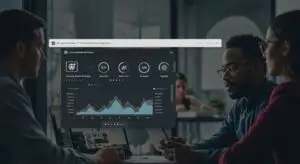Is your website struggling to attract visitors and generate leads? Many businesses overlook the importance of technical SEO, which plays a crucial role in enhancing a site’s relevance and visibility. This article will cover key technical SEO improvements, the benefits of expert support, and steps to optimize your web pages effectively. Engaging with this content will help local business owners understand how to address common pain points and elevate their online presence to achieve better performance. Let’s explore how expert technical SEO support can transform your website into a powerful business tool.
Key Takeaways
- Technical SEO significantly enhances website performance, user engagement, and search engine rankings
- Implementing HTTPS improves security and boosts trustworthiness, impacting search visibility positively
- Regular audits help identify and fix technical issues, enhancing user experience and search performance
- Mobile optimization is essential as it caters to the growing number of mobile device users
- Structured data implementation improves understanding and visibility of content in search engine results
Understanding the Impact of Technical SEO on Website Performance

Technical SEO plays a pivotal role in enhancing Website Management Services performance through improved search engine rankings and user engagement. Key aspects include the influence of site speed on bounce rate, the identification of common technical issues like broken permalinks and ineffective XML sitemaps, and the necessity of mobile optimization as a priority. Additionally, implementing transport layer security is crucial for maintaining a secure browsing experience. These factors collectively shape how well a website performs in today’s digital environment.
The Role of Technical SEO in Search Engine Rankings
Technical SEO significantly impacts search engine rankings by optimizing various aspects of a website that search engines consider important. For instance, well-structured navigation not only enhances the user experience but also ensures that search engine crawlers can efficiently index site content. By focusing on aspects such as website speed and mobile-friendliness, a technical SEO agency can create a web design that meets both user expectations and search engine algorithms.
Another crucial element in technical SEO is the proper implementation of schema markup. This helps search engines better understand the content and context of web pages, which can lead to improved visibility in search results. An easy-to-navigate site with clear content organization can also reduce bounce rates, further boosting rankings. As users increasingly prioritize accessibility, websites that meet these technical standards are more likely to rank higher and attract more traffic.
Implementing HTTPS is another essential component of technical SEO. Security has become a ranking factor, with search engines favoring sites that protect user data. Additionally, an effective technical SEO strategy addresses various technical issues, such as broken links or missing XML sitemaps. Organizations looking to elevate their website performance should consider working with a technical SEO agency that can provide expert guidance and support tailored to their unique needs:
| Technical SEO Factors | Impact on Search Engine Rankings |
|---|---|
| Site Navigation | Enhances user experience and indexing |
| Schema Markup | Improves content clarity for search engines |
| HTTPS Implementation | Increases site security and trustworthiness |
| Addressing Technical Issues | Reduces bounce rates and improves rankings |
How Site Speed Influences User Engagement
Site speed is a critical factor in user engagement, significantly influencing how visitors interact with a website. Studies reveal that slow-loading pages lead to higher bounce rates, as users are likely to exit before the content fully loads. This delay not only frustrates visitors but also diminishes their chances of returning, impacting potential sales and conversions for local businesses.
Implementing effective technical SEO services can enhance site speed, leading to improved user satisfaction. For instance, utilizing strategies like optimized images and streamlined code can significantly reduce load times. By ensuring quick access to information, businesses can maintain user attention longer, ultimately leading to a better overall experience that keeps their audience engaged.
Moreover, faster sites often perform better on search engine results pages (SERPs). Search engines prioritize websites that provide quick access to content, which involves factors like breadcrumb navigation that enhances user experience and keeps visitors on site longer. Therefore, prioritizing site speed not only meets user expectations but also supports better keyword research and optimization efforts, aligning with technical SEO goals that drive traffic and visibility.
Common Technical Issues That Affect Visibility
Common technical issues can significantly hinder a website’s visibility and overall performance. For instance, improper link building practices can lead to dead or broken links, resulting in a poor user experience and an increased bounce rate. Website owners must conduct regular audits to identify and fix these issues, ensuring their links lead visitors to valuable content without interruption.
Another critical factor is the implementation of hreflang tags. Without these tags, search engines may struggle to determine the appropriate language or regional version of a page, potentially leading to confusion among international users. Properly utilizing hreflang ensures that the right audiences access relevant content, enhancing user satisfaction and engagement.
Server performance also plays a vital role in website visibility. Slow server response times can delay page loading, which directly impacts user experience. If a site uses the “noindex” meta tag incorrectly, it may inadvertently prevent important pages from being indexed by search engines. Regular server optimization and monitoring ensure that all essential pages are visible and accessible, maximizing the site’s potential to attract traffic and improve search rankings.
Mobile Optimization as a Technical SEO Priority
Mobile optimization is essential for enhancing website performance, especially as mobile device usage continues to rise among various target audiences. A responsive web architecture ensures that content displays seamlessly on devices of all sizes, providing an optimal user experience. By employing a suitable markup language, businesses can create mobile-friendly websites that improve engagement and reduce bounce rates.
Implementing features such as efficient caching techniques on the web server helps speed up page load times on mobile devices. Quick loading times are a crucial factor for retaining users, as visitors are more likely to abandon a site that takes too long to open. Organizations must prioritize mobile optimization by regularly testing their sites for speed and functionality across different devices.
Additionally, optimizing mobile sites requires a focus on usability and accessibility, which supports better interaction with each visitor. Factors such as larger click targets, simplified navigation, and reduced content clutter play a significant role in creating a user-friendly mobile experience. Businesses that invest in expert technical SEO support will not only cater to their audience’s preferences but also enhance their online visibility:
- Responsive web architecture for seamless content display
- Efficient caching techniques for improved page load times
- Usability enhancements to support user interaction
Key Technical SEO Improvements to Boost Your Site

Enhancing site architecture improves crawlability for web crawlers, leading to better indexing and search performance. Optimizing page speed through technical adjustments contributes to user retention and satisfaction. Implementing structured data supports rich results in search engines, while fixing broken links and URL errors ensures a smooth user journey. Additionally, ensuring secure connections with HTTPS protects user data, boosting trust and ranking potential. These improvements are critical for effective content marketing and achieving high keyword visibility.
Enhancing Site Architecture for Better Crawlability
Enhancing site architecture is vital for improving crawlability, allowing search engines to efficiently index a website’s content. A well-structured site not only boosts PageRank but also helps algorithms identify the importance of individual pages. By prioritizing clear site navigation, web developers can create a more user-friendly experience that facilitates better indexing and visibility in search results.
Implementing strategies like lazy loading can significantly improve site performance without sacrificing user experience. This technique allows images and content to load only when they are in the user’s viewport, which keeps page load times fast. Regularly analyzing site performance through tools like Google Analytics can help identify potential issues and opportunities for further optimization to ensure a responsive architecture.
Moreover, a focus on internal linking can enhance the flow of PageRank across various pages, distributing authority evenly throughout the site. This not only aids in search engine navigation but also keeps users engaged by guiding them to relevant content. Addressing these aspects systematically allows businesses to meet both user expectations and search engine standards effectively:
- Clear navigation structure for improved indexing
- Lazy loading to enhance loading speed
- Regular analytics reviews for ongoing optimization
- Strategic internal linking to distribute PageRank
Optimizing Page Speed Through Technical Adjustments
Optimizing page speed is essential for enhancing user experience and improving search engine rankings. Using efficient file formats, such as WebP for images and GZIP for compressing HTML, CSS, and JavaScript, can significantly reduce file sizes without compromising quality. This not only boosts accessibility by allowing users with varying internet speeds to access content more quickly but also improves overall performance, leading to higher engagement rates.
Another critical aspect of optimizing page speed involves managing resources effectively. By minimizing HTTP requests and utilizing techniques like asynchronous loading for JavaScript and CSS files, sites can decrease load times significantly. Furthermore, organizing metadata correctly ensures that content is rendered quickly and efficiently, which is vital for retaining visitors and reducing bounce rates.
A regular content management audit can identify and address any elements slowing down a website. By removing unnecessary plugins, optimizing databases, and regularly checking image sizes, businesses can ensure that their site remains agile. Each of these adjustments contributes to a more seamless user experience, encouraging visitors to stay longer and interact more with a website:
| Optimization Technique | Impact on Page Speed |
|---|---|
| Use Efficient File Formats | Reduces file sizes and loading times |
| Manage Resources | Decreases HTTP requests and enhances load times |
| Content Management Audit | Identifies speed-reducing elements |
Implementing Structured Data for Rich Results
Implementing structured data significantly enhances a website’s ability to provide rich results in search engines. This data, which outlines the content’s context, helps search engines understand and display the information more effectively. For example, by using schema markup, a business can promote its products or services through enhanced search listings, effectively attracting more visitors who seek specific information.
A content delivery network (CDN) can further support structured data by improving the loading speed of rich content. When schema markup is employed and combined with a CDN, the delivered content becomes accessible faster, improving user experience and boosting engagement. Incorporating pagination in structured data allows for better indexing of multi-page content, ensuring users can find relevant information quickly.
Automation in implementing structured data can simplify the process for website owners. Engaging with a professional SEO agency can provide tailored solutions to integrate structured data efficiently across a website, even for those using subdomains. This technical support not only enhances search visibility but also elevates overall website performance:
| Structured Data Benefits | Impact on Website Performance |
|---|---|
| Enhanced Search Listings | Attracts more targeted visitors |
| Faster Content Delivery | Improves user engagement |
| Efficient Indexing | Streamlines access to information |
| Automation | Simplifies structured data implementation |
Fixing Broken Links and URL Errors
Fixing broken links and URL errors is vital for improving organic search results and enhancing user experience. Broken links can lead users to dead ends, resulting in high bounce rates that negatively impact engagement levels. When visitors encounter a broken link, they are likely to leave the site, which not only affects immediate traffic but also sends negative signals to search engines regarding the site’s quality.
Maintaining a clean hierarchy of internal and external links is crucial for both users and search engines. By ensuring that every landing page is properly linked, website owners can guide visitors through relevant content without unnecessary interruptions. This seamless navigation helps search engines effectively crawl the site, making it easier to index pages and improve search visibility.
Regularly auditing and fixing broken links and URL errors can significantly foster a positive experience for users while optimizing the website for search engines. Institutions often utilize tools to monitor link health and report issues, allowing for timely resolutions. In doing so, businesses can create a more trustworthy online presence that attracts and retains visitors through excellent user experience:
- Assess overall link quality in content
- Monitor internal linking structure
- Resolve broken links promptly
- Utilize tools for link auditing
Ensuring Secure Connections With HTTPS
Ensuring secure connections with HTTPS is essential for any website aiming to enhance its overall performance and user trust. By implementing HTTPS, users’ data becomes encrypted during their interaction with the site, leading to safer online experiences. This added layer of security not only protects sensitive information but also signals to users that the site is trustworthy, making them more likely to engage with the business.
Moreover, search engines prioritize sites that utilize HTTPS, rewarding them with better rankings. This means that websites with secure connections often enjoy improved visibility in search results, which can lead to increased traffic and higher engagement levels. By conducting thorough research on competitor practices, businesses can identify the importance of securing their sites to stay ahead in a competitive landscape.
Additionally, HTTPS can enhance the effectiveness of content creation strategies and backlink acquisition. A secure site encourages other websites to link back to it, fostering valuable backlinks that improve authority and trustworthiness. Effective use of nofollow attributes on unwanted or risky backlinks can help maintain a clean link profile, further supporting the site’s SEO efforts and overall online reputation.
How Expert Technical SEO Support Elevates Your Online Presence

Professional technical SEO services offer numerous benefits, including customized solutions tailored for various content management systems. These services address usability and mobile device optimization, ensuring a seamless user experience. Real-world examples showcase successful SEO improvements, while ongoing maintenance is essential for sustained performance. A Free Local SEO Audit can identify specific areas for growth and enhancement.
Benefits of Professional Technical SEO Services
Professional technical SEO services provide tailored strategies that enhance website performance, focusing on unique challenges faced by local businesses. By conducting comprehensive audits, these services identify specific weaknesses such as slow site speed or broken links that can adversely affect user experience and search engine rankings. This targeted approach ensures that businesses receive the right solutions to elevate their online presence effectively.
Furthermore, expert technical SEO services implement advanced techniques such as schema markup and optimized site architecture. These enhancements not only improve search visibility but also ensure that web pages are structured in a way that appeals to both search engines and users. Consequently, businesses can expect higher engagement rates and an increased likelihood of converting visitors into customers.
Continuous monitoring and maintenance are essential components of professional technical SEO support, ensuring that website performance remains high over time. By keeping up with the latest SEO trends and algorithm updates, these services help businesses stay competitive in a rapidly changing digital landscape. This ongoing commitment significantly boosts a website’s ability to attract and retain an audience, ultimately driving better business results and customer satisfaction.
Customized Technical Solutions for Your Website
Customized technical solutions are essential for improving a website’s performance. By analyzing specific business needs and challenges, technical SEO professionals can implement targeted enhancements that address unique pain points. This tailored approach ensures that local businesses can achieve optimal functionality while catering to the needs of their audiences.
For example, a local bakery might require a website that loads quickly to accommodate high traffic during peak hours. Experts can optimize images and streamline website code to ensure the site operates efficiently, directly enhancing user experience and engagement. Customized technical solutions not only address immediate concerns but also create a foundation for long-term success through consistent performance improvements.
By monitoring website performance regularly, technical SEO specialists can make adjustments when necessary, ensuring that businesses adapt to changing market conditions. This ongoing support allows for the integration of emerging technologies and trends, keeping the website competitive within its niche. An effective strategy typically includes steps such as:
- Conducting a comprehensive analysis of current website performance
- Identifying specific areas for technical enhancements
- Implementing solutions tailored to unique business requirements
- Continuous monitoring and updates to maintain optimal performance
Real-World Examples of Successful SEO Improvements
One notable example of successful SEO improvements comes from a local restaurant that partnered with a technical SEO agency. By addressing slow site speed and optimizing the mobile experience, the restaurant saw a 40% increase in mobile traffic within just three months. These changes significantly enhanced user engagement, leading to higher reservation bookings directly through their website.
Another case involves a regional e-commerce store that struggled with search visibility due to broken links and poor site navigation. After implementing a comprehensive technical SEO audit, the agency restructured the website’s architecture and fixed critical link issues. As a result, the store experienced a 60% boost in organic search traffic, allowing them to reach their target customers more effectively and increase sales.
Additionally, a local service provider benefited from utilizing structured data for rich snippets. By integrating schema markup into their website, the provider enhanced their search listings, making their services more appealing in search results. This strategic move not only improved click-through rates by 50% but also solidified their brand presence online, demonstrating the tangible benefits of expert technical SEO support.
Ongoing Maintenance for Sustained Performance
Ongoing maintenance is critical for sustaining website performance and ensuring that a business remains competitive in the digital landscape. Regular technical audits help identify potential issues such as broken links, outdated plugins, or slow loading times, which can negatively impact user experience and SEO rankings. By proactively addressing these elements, businesses can enhance their online presence and maintain a smooth user journey.
Moreover, search engines continuously update their algorithms, making it essential for businesses to adapt their technical SEO strategies accordingly. Ongoing maintenance involves adjusting to these changes, optimizing content, and ensuring that all technical aspects are aligned with current best practices. This adaptability not only protects past investments in SEO efforts but also positions businesses for future growth and visibility in search results.
Finally, expert technical SEO support provides the necessary insight and experience to ensure that ongoing maintenance is thorough and effective. By utilizing industry tools and benchmarks, professionals can track website performance metrics over time, allowing businesses to see tangible improvements. This consistent engagement fosters a strong online presence, ultimately leading to increased traffic, higher conversions, and a loyal customer base.
Steps to Optimize Your Website With Technical SEO Support

To elevate website performance through expert technical SEO support, businesses must follow a systematic approach. This includes conducting a comprehensive technical audit to identify site issues, prioritizing technical fixes based on their impact, and implementing recommendations effectively. Additionally, continuous monitoring of changes and measuring their effects will ensure sustained improvements in user engagement and search engine visibility.
Conducting a Comprehensive Technical Audit
Conducting a comprehensive technical audit is a vital step in optimizing website performance. This process involves a thorough examination of various technical aspects, such as site speed, mobile optimization, and security protocols like HTTPS. By identifying and addressing these elements, businesses can significantly enhance their online presence and ensure a seamless user experience.
During the audit, experts assess critical factors, including broken links and site navigation issues, which can detract from user engagement. By pinpointing areas that need improvement, businesses can take targeted actions to rectify these problems and improve search engine rankings. For example, fixing broken links not only enhances the website’s functionality but also keeps users on the site longer, reducing bounce rates.
Moreover, regular technical audits allow businesses to stay updated with the latest SEO trends and algorithm changes. This ongoing analysis helps ensure that all technical aspects align with best practices, promoting sustained visibility in search results. By investing time and resources into comprehensive audits, businesses can maintain their competitive edge in the digital landscape and effectively engage their target audience.
Identifying and Prioritizing Technical Fixes
Identifying and prioritizing technical fixes is a fundamental step in enhancing website performance. Businesses can start by conducting a comprehensive audit that highlights critical areas needing immediate attention, such as slow load times or broken links. This initial assessment not only guides the optimization strategy but also ensures that resources are focused where they can make the most significant impact.
Once issues are identified, prioritization becomes essential. Problems that directly affect user experience, like high bounce rates from slow loading pages or dead links, should be addressed first. By focusing on the most pressing issues, businesses can implement fixes that yield noticeable improvements in site functionality, leading to better user engagement and higher search engine rankings.
A systematic approach can streamline this process. Businesses can categorize fixes based on their urgency and potential impact, ranking them to create an actionable plan. Common categories include performance improvements, mobile optimization, and navigation adjustments. This structured method not only clarifies the path forward but also facilitates efficient tracking of progress:
- Conduct a comprehensive site audit
- Identify critical issues affecting performance
- Prioritize fixes based on urgency and impact
- Implement fixes systematically for optimal results
Implementing Technical Recommendations Effectively
Implementing technical recommendations requires a structured approach to ensure each change positively affects overall website performance. Businesses should begin by selecting one or two high-priority fixes from their audit findings, focusing on those that will yield the most significant impact on user experience and search rankings. For instance, addressing slow loading times by optimizing image sizes can lead to immediate improvements in site speed and user retention.
Once the priorities are established, it’s essential to monitor the effects of each implemented recommendation. Utilizing tools like Google Analytics can provide insights into user behavior changes, such as reduced bounce rates or increased page views, allowing businesses to evaluate the success of their modifications. Continuous tracking enables timely adjustments to be made, ensuring the website adapts to user needs and maintains optimal performance.
In conclusion, a collaborative effort among team members can enhance the implementation process. Regular communication between technical SEO specialists, content creators, and developers ensures all aspects of the website align with best practices. This teamwork not only streamlines the optimization efforts but also fosters a culture of continuous improvement that can significantly elevate the website’s performance over time:
- Identify high-priority fixes from audit findings.
- Monitor results using analytical tools.
- Encourage collaboration among team members for effective implementation.
Monitoring Changes and Measuring Impact
Monitoring changes after implementing technical SEO strategies is essential for understanding their effectiveness. By utilizing tools like Google Analytics or Search Console, businesses can track key performance indicators, such as page load speed, bounce rates, and organic traffic. These metrics provide valuable insights into how user engagement is transforming as a direct result of the optimizations made.
In addition to tracking metrics, evaluating the impact of specific adjustments can guide future strategies. For example, if a website sees a marked improvement in user retention following image optimization, it demonstrates the importance of that particular technical fix. This feedback loop allows businesses to fine-tune their SEO efforts, focusing on what brings the most significant results.
Regularly reviewing these measurements ensures that technical SEO remains agile and responsive to changes in user behavior and industry trends. Adjustments to strategies based on data can lead to continuous website improvement, driving increased traffic and engagement over time. By investing in the ongoing analysis of these metrics, local businesses can elevate their online presence and remain competitive in their respective markets.
Choosing the Right Technical SEO Partner for Your Business

Choosing the right technical SEO partner is crucial for elevating website performance. Businesses should evaluate the expertise and track records of potential SEO support teams, while asking the right questions to uncover their capabilities. Understanding the offers and deliverables, as well as ensuring alignment with specific business goals, will help in making an informed decision that drives results.
Evaluating Expertise and Track Records
When evaluating potential technical SEO partners, it is vital for businesses to scrutinize their expertise in the field. A proven track record with case studies showcasing successful website optimizations can provide insight into their capability to improve site performance. For instance, partners with experience in enhancing page speeds or fixing broken links should demonstrate quantitative results to indicate their effectiveness.
Moreover, prospective partners should possess knowledge of current industry trends and search engine algorithms. Understanding the intricacies of technical SEO allows partners to implement the most effective strategies tailored to a specific business’s needs. Companies should inquire about past client experiences and seek feedback to gauge the partner’s approach to ongoing learning and adaptation.
Lastly, assessing the communication and support style of technical SEO agencies can be telling in selecting the right fit. A quality partner emphasizes collaboration and regular updates, ensuring the business understands the progress and impact of ongoing efforts. By prioritizing transparency, businesses can form a solid working relationship that fosters continuous improvement and trust.
Questions to Ask Potential SEO Support Teams
When selecting a technical SEO partner, businesses should inquire about their specific strategies for enhancing website performance. Questions about their approach to site speed optimization, mobile responsiveness, and secure connections can reveal their understanding of crucial technical factors. It is essential that potential partners demonstrate familiarity with current industry standards and best practices in technical SEO to ensure they can effectively support the unique needs of the business.
Furthermore, evaluating a technical SEO agency’s past success can be beneficial. Asking about case studies or real-world examples of how they have improved other websites can provide insights into their capabilities. Businesses should seek partners that can illustrate tangible results, such as increased site traffic or improved search engine rankings, showcasing their expertise in driving meaningful website performance enhancements.
Lastly, communication is vital in any partnership. Businesses should discuss how often they can expect updates and reports on progress. Clear and regular communication from a technical SEO team fosters collaboration and allows for adjustments to strategies as needed. Ensuring that the potential partner prioritizes transparency and client education will create a more productive working relationship that focuses on elevating website performance over time.
Understanding Service Offerings and Deliverables
Understanding service offerings and deliverables is essential for businesses seeking the right technical SEO partner. This includes a clear outline of the services provided, such as site audits, keyword research, and ongoing optimization strategies tailored to enhance website performance. Knowing what to expect from a potential partner ensures that businesses can align their needs with the appropriate services.
Businesses should seek partners who provide a comprehensive range of technical SEO services, ensuring coverage of all aspects, including site speed enhancements, mobile optimization, and structured data implementation. These elements drive better search engine rankings and improve user experience. A detailed proposal that outlines the specific deliverables can help businesses gauge how effectively a partner will address their challenges and elevate their online presence.
Regular reporting and progress updates are also key deliverables to consider. Transparent communication allows businesses to track improvements in areas like page speed, bounce rates, and overall search performance. By working with a technical SEO partner who prioritizes regular updates, businesses can make informed adjustments to their strategies based on real-time data:
- Outline of services offered
- Comprehensive technical SEO coverage
- Regular reporting and communication
Aligning SEO Support With Your Business Goals
Aligning SEO support with business goals is a fundamental step for companies looking to enhance their online presence. When selecting a technical SEO partner, businesses should clearly define their objectives, whether it’s increasing web traffic, improving search rankings, or enhancing user engagement. A partner who understands these specific goals can develop tailored strategies that directly address the unique challenges faced by each business.
For instance, a local retail store aiming to boost in-store traffic might benefit from an SEO strategy focused on local search optimization and keyword targeting relevant to their community. By leveraging technical SEO tactics such as Google My Business optimization and local keyword integration, the partner can attract more potential customers searching for products nearby. This alignment not only enhances visibility but directly contributes to achieving the business’s overarching goal.
Furthermore, ongoing communication about performance metrics plays a crucial role in ensuring that SEO efforts remain aligned with evolving business goals. By regularly reviewing progress and analytics data, businesses can adapt their strategies to reflect changes in their objectives or market conditions. Effective collaboration with an SEO partner fosters a proactive approach to optimization, allowing businesses to sustain growth and maximize their online impact.
Maximizing Long-Term Website Performance

Maximizing long-term website performance involves several key strategies. Staying updated with SEO best practices ensures that a website remains competitive and compliant with current standards. Integrating technical SEO with content strategy enhances user engagement while preparing for future search engine updates guards against potential penalties. Lastly, leveraging analytics for continuous improvement allows businesses to adapt and refine their online presence effectively.
Staying Updated With SEO Best Practices
Staying updated with SEO best practices is essential for businesses striving to maximize their online performance. Search engines like Google continuously evolve their algorithms, making it vital for business owners to remain informed about the latest changes. Regularly exploring industry news, subscribing to trusted SEO blogs, and participating in webinars can help local businesses keep their skills sharp and strategies effective.
Another effective way to stay abreast of SEO best practices is by utilizing analytics tools that track website performance and user behavior. These tools provide valuable insights into what works and what doesn’t, enabling business owners to make data-driven decisions. By focusing on key metrics such as organic traffic and bounce rates, businesses can adjust their strategies to improve overall performance and visitor engagement.
Additionally, engaging with a professional technical SEO agency can provide ongoing support and expertise that aligns with current best practices. These agencies often have access to resources and knowledge that individual business owners might not have, facilitating the implementation of successful SEO strategies. Tailored solutions from professionals ensure that local businesses can respond promptly to changes in the SEO landscape, maintaining competitiveness in an online market that is constantly evolving.
| Strategy | Description |
|---|---|
| Industry News | Regularly review SEO blogs and updates to stay informed. |
| Analytics Tools | Utilize analytics for data-driven adjustments to SEO strategies. |
| Professional Support | Engage with technical SEO agencies for expert guidance. |
Integrating Technical SEO With Content Strategy
Integrating technical SEO with content strategy is essential for maximizing website performance. By ensuring that technical elements, such as site structure and loading speed, work in harmony with content, businesses can enhance user experience and improve search engine rankings. For example, optimizing images and utilizing proper headings can help align the technical framework with the content goals, ultimately driving better engagement.
When developing content, businesses should pay attention to keyword optimization while also considering the technical aspects that affect how content is delivered to users. For instance, using schema markup within articles not only helps search engines understand content context but also enhances visibility in search results. This integration ensures that content is both valuable to the audience and easily accessible, leading to greater user satisfaction and retention.
Furthermore, a collaborative approach between content creators and technical SEO experts can result in a more cohesive strategy. Regular feedback and data analysis can inform adjustments to both content and technical elements, creating a responsive online presence that meets user needs. This partnership fosters continuous improvement, enabling businesses to stay competitive in an ever-evolving digital landscape.
Preparing for Future Search Engine Updates
Preparing for future search engine updates requires businesses to adopt a proactive SEO strategy. This involves staying informed about emerging trends and algorithm changes, which can significantly influence search rankings. Regular audits and updates to the website are essential to ensure compliance with the latest standards set by search engines.
Technical SEO experts recommend implementing best practices that focus on flexibility and adaptability. For instance, optimizing for core Web Vitals and ensuring mobile-friendliness are crucial as search engines increasingly prioritize user experience. Maintaining a robust and secure website infrastructure also supports quick adjustments when updates occur, minimizing the risk of ranking drops.
Additionally, engaging in ongoing education and collaboration with SEO professionals positions businesses for success in an evolving digital landscape. By developing a strong foundation in technical SEO and prioritizing responsive strategies, local businesses can not only enhance their current performance but also prepare for future changes. These steps ensure that websites maintain visibility and effectively meet user needs:
| Preparation Strategy | Description |
|---|---|
| Stay Informed | Regularly update knowledge of industry trends and algorithm changes. |
| Implement Best Practices | Optimize for user experience and mobile responsiveness. |
| Engage with SEO Experts | Collaborate with professionals for ongoing support and strategy updates. |
Leveraging Analytics for Continuous Improvement
Leveraging analytics is crucial for ongoing website improvement, enabling businesses to monitor user behavior and engagement effectively. By analyzing data on traffic sources, page views, and conversion rates, businesses can pinpoint areas requiring enhancements. These insights allow for informed decisions that contribute directly to elevating website performance and user satisfaction.
Additionally, tools such as Google Analytics provide valuable metrics that highlight trends and patterns in user interaction. For instance, if a particular page experiences high bounce rates, it may indicate that the content is not meeting user expectations or needs improvement in design. Regularly assessing these analytics empowers businesses to refine their content strategy and optimize the user journey across their site.
Implementing a continuous feedback loop through analytics helps businesses remain agile in their approach to technical SEO. By routinely evaluating performance metrics, businesses can adapt to changes in user behavior and search engine algorithms. This proactive strategy promotes sustained improvements, ensuring that the website remains competitive in search rankings and meets the evolving demands of its audience:
| Analytics Tool | Key Metric | Actionable Insight |
|---|---|---|
| Google Analytics | Bounce Rate | Evaluate and enhance content to retain users. |
| Search Console | Click-Through Rate | Optimize meta descriptions and titles for better visibility. |
| Heatmaps | User Interaction | Identify popular areas to enhance navigation and layout. |







